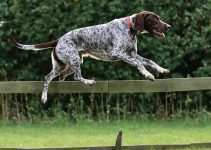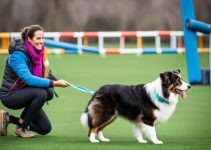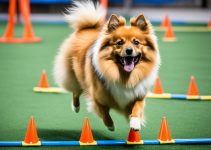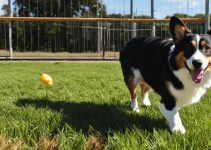Welcome to my guide on Basset Hound training! Basset Hounds are known for their adorable droopy ears and lovable nature. However, their strong natural instincts and stubborn streak can pose challenges when it comes to training. But fear not, with the right techniques and a little patience, you can successfully train your Basset Hound to be a well-behaved companion.
Above and Beyond Basset Hound Training
- Understanding Basset Hound breed characteristics is essential before starting training.
- Positive reinforcement using high-value treats and praise is the most effective training technique.
- Basic obedience training is crucial, starting with simple commands and gradually progressing to more complex ones.
- Crate training can help with house training and separation anxiety.
- Consistency and rewards are key to successful potty training.
Understanding Basset Hound Breed Characteristics
When it comes to Basset Hound training, it’s crucial to understand their unique breed characteristics. Bred in France for hunting, Basset Hounds have a strong natural instinct to follow scents. This means that they are often more interested in sniffing out interesting smells than listening to their owners.
Additionally, Basset Hounds have a stubborn streak, which can pose a challenge during training sessions. Their independent nature coupled with their strong instinct to follow scents can make them resistant to instruction at times. Patience and persistence are key when it comes to training a Basset Hound.
That said, knowing these breed characteristics is essential before embarking on a Basset Hound training journey. By understanding their innate hunting instinct and stubbornness, you can tailor your Basset Hound training methods to cater to their unique needs and behaviors.
- Strong hunting instinct: Due to their breeding background, Basset Hounds have an exceptional sense of smell and a natural desire to follow scents. This instinct can often override their obedience, making it important to provide them with the appropriate outlets and training to redirect their focus.
- Independence: Basset Hounds are known for their independent nature. They may not always show the same level of eagerness to please their owners as some other breeds. This independence can make training a bit more challenging, but with consistency and positive reinforcement, you can successfully train your Basset Hound.
- Stubbornness: The stubborn streak common in Basset Hounds stems from their strong hunting instinct. They are determined dogs who may not always respond immediately or willingly to commands. It’s important to use positive reinforcement techniques and be patient and persistent in your training efforts.
By understanding these breed characteristics and working with them rather than against them, you can build a strong bond with your Basset Hound and successfully train them to be well-behaved and obedient companions.
Positive Reinforcement Training Techniques
Positive reinforcement is a highly effective Basset Hound training method. This approach involves rewarding your dog for exhibiting good behavior by utilizing treats, praise, or toys. Consistency is crucial when implementing positive reinforcement, and it is important to provide immediate rewards after your Basset Hound performs the desired behavior.
To maximize motivation, opt for high-value treats that your Basset Hound adores. By using treats your dog loves, you will enhance their eagerness to learn and engage in training sessions. Additionally, employing a positive tone of voice and showering them with praise will further reinforce positive behaviors.
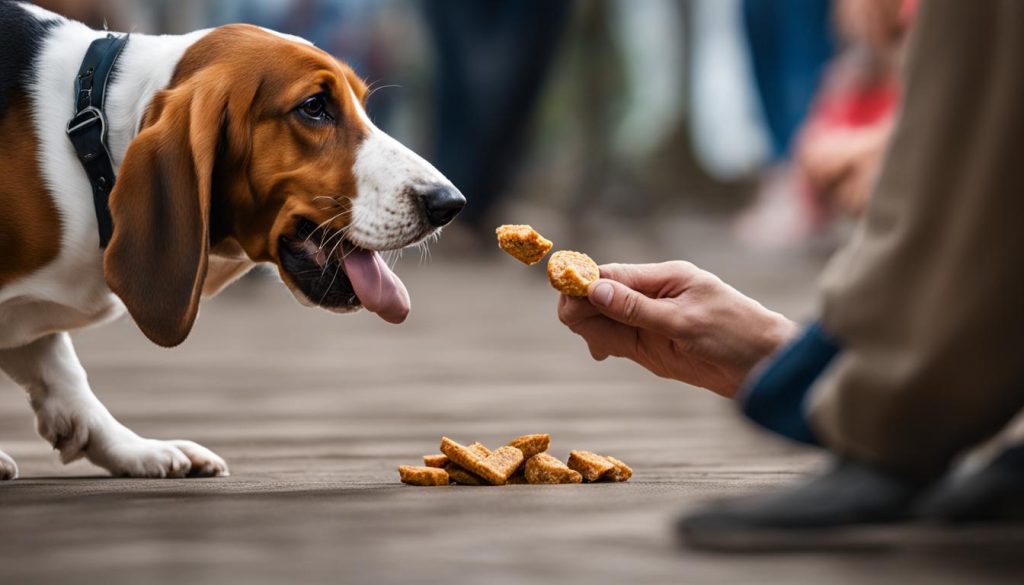
Positive reinforcement training builds a healthy and cooperative relationship with your Basset Hound. It encourages them to repeat desirable actions, making the learning process enjoyable for both you and your furry companion.
Basic Obedience Training
Basic obedience training is essential for all dogs, including Basset Hounds. It provides them with the foundation they need to become well-behaved and obedient companions. Not only does it teach them essential commands, but it also helps establish a strong bond between you and your dog.
Learning Basset Hound Commands
During basic obedience training, Basset Hounds learn a variety of important commands that will make their everyday lives easier and safer. These commands include sit, stay, come, and heel. By teaching them these commands, you can communicate effectively with your Basset Hound and ensure their safety in various situations.
Building a Strong Bond
Basset Hound training is not just about teaching them commands; it’s also about building a strong bond with your furry friend. Through training sessions, you get to spend quality time together, and your dog learns to trust and respect you as their leader. This bond will strengthen your relationship and help you navigate through challenges together.
When starting basic obedience training with your Basset Hound, it’s important to begin with simple commands and gradually increase the complexity as they become more comfortable and responsive. Training sessions should be short and consistent to keep your dog engaged and focused.
Remember to use positive reinforcement during training sessions. Reward your Basset Hound with treats, praise, and affection when they exhibit the desired behavior. This positive approach not only motivates your dog to learn but also fosters a loving and respectful relationship between you two.
Having treats on hand during Basset Hound training sessions is essential. Use high-value treats that your Basset Hound finds especially enticing. This will make them eager and eager to please you, improving their training performance.
Crate Training and Potty Training
When it comes to training your Basset Hound, two essential elements to focus on are crate training and potty training. Crate training can be a highly effective method for teaching your dog discipline and keeping them safe and secure while you’re away.
First and foremost, it’s essential to choose the right size crate for your Basset Hound. The crate should be spacious enough for them to stand up, turn around, and lie down comfortably. Introduce your dog to the crate gradually, making it a positive and inviting space. Use treats and toys as a way to encourage your Basset Hound to enter and explore the crate. This will help them associate the crate with positive experiences.
Next, let’s talk about potty training. Establishing a consistent routine is key to successfully potty training your Basset Hound. Take your dog to the same designated spot whenever they need to go. Using a specific command, like “go potty,” will help your dog understand what you expect from them. Be patient and give them plenty of time to do their business.
Remember to reward your Basset Hound for successful potty trips. Positive reinforcement is a powerful tool in training. Use treats and praise to show your dog that they’ve done a good job. This will motivate them to repeat the desired behavior in the future.
During the potty training process, it’s crucial to closely supervise your Basset Hound. Keeping a watchful eye on them will help you anticipate when they need to go outside. If accidents happen indoors, clean them up promptly using an enzymatic cleaner. This type of cleaner eliminates odors, making it less likely for your Basset Hound to go in the same spot again.
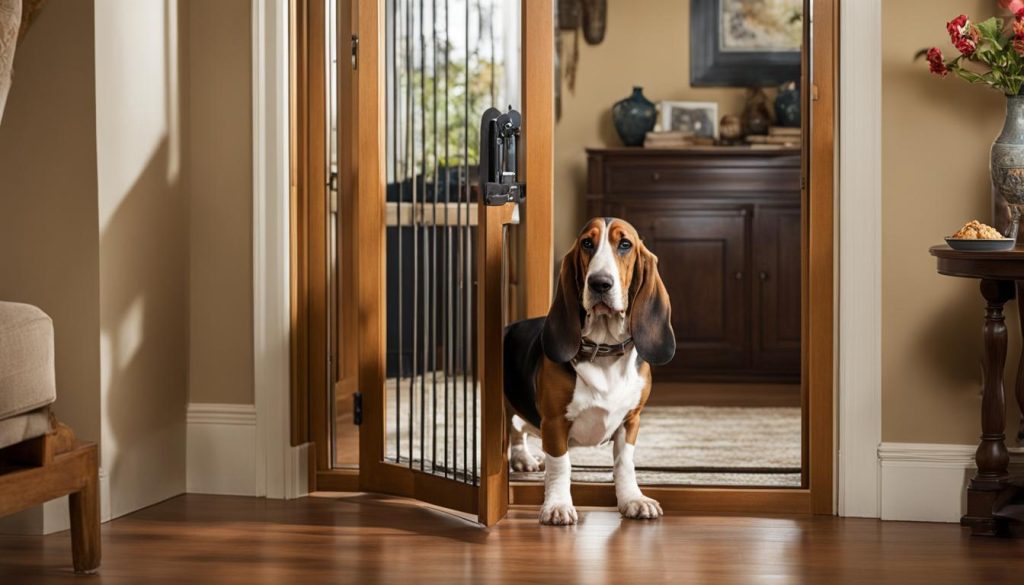
By implementing proper crate training and potty training techniques, you can set your Basset Hound up for success. Consistency, patience, and positive reinforcement are essential in shaping your dog’s behavior and ensuring they become a well-behaved and house-trained companion.
Socializing Your Basset Hound
Socializing a Basset Hound is essential for their overall behavior and confidence. When done from a young age, it helps them develop into well-adjusted and well-behaved dogs. Positive exposure to different people, animals, and environments is key to their socialization process.
Start socializing your Basset Hound by introducing them to friends, family members, and other trusted individuals. Encourage positive interactions and provide treats and praise when they display good behavior. This will help them associate meeting new people with positive experiences.
It’s also important to expose your Basset Hound to different animals, including other dogs. Arrange playdates or take them to dog parks, ensuring that the interactions are controlled and supervised. This will help them become comfortable and confident around other animals.
Incorporating various environments into their socialization routine is equally important. Take your Basset Hound for walks in different settings, such as parks, busy streets, and quiet neighborhoods. Gradually increase the level of exposure to new environments, keeping a watchful eye on their reactions and providing positive reinforcement.
Remember, socialization should be a positive experience for your Basset Hound. Avoid exposing them to overwhelming situations and always prioritize their comfort and well-being. By gradually exposing them to new experiences and providing positive reinforcement, you can help your Basset Hound become a well-socialized and confident canine companion.
Advanced Training and Conclusion
Once your Basset Hound has mastered basic obedience training, it’s time to take their skills to the next level with advanced training activities. Two popular options for advanced Basset Hound training are agility and tracking.
Agility training is a fantastic way to provide mental and physical stimulation for your Basset Hound. It involves navigating obstacle courses, jumping over hurdles, weaving through poles, and going through tunnels. This activity not only keeps your dog physically fit but also helps improve their coordination and focus. Plus, it’s a great bonding experience for you and your furry friend.
Tracking training taps into your Basset Hound’s natural instinct to follow scents. This activity allows them to use their incredible sense of smell to locate and track specific scents or objects. Tracking can be a fun and challenging activity that provides mental stimulation and satisfies their hunting instincts.
To ensure your Basset Hound receives the best training experience, it’s recommended to find a qualified trainer who specializes in agility and tracking. They can guide you through the training process, teach you the proper techniques, and help you and your dog reach your full potential.
Basset Hound training requires patience, consistency, and positive reinforcement. By understanding their breed characteristics and using effective techniques like positive reinforcement and crate training, you can raise a well-behaved and obedient Basset Hound. And with advanced training activities like agility and tracking, you can further enhance their skills, provide mental and physical stimulation, and strengthen the bond between you and your canine companion.
FAQ
What are some effective training techniques for Basset Hounds?
Positive reinforcement, using high-value treats and praise, is the most effective technique. Avoid punishment or negative reinforcement.
Why is basic obedience training important for Basset Hounds?
Basic obedience training helps them learn commands like sit, stay, come, and heel. It also establishes you as the pack leader and strengthens the bond between you and your dog.
How can I crate train my Basset Hound?
Choose the right size crate and gradually introduce your dog to it using treats and toys. Crate training can help with house training and separation anxiety.
What is the best way to potty train a Basset Hound?
Establish a consistent routine, take them to the same spot, use a command like “go potty,” and reward them with treats and praise for good behavior. Clean up accidents with enzymatic cleaner.
How should I socialize my Basset Hound?
Expose them to different people, animals, and environments in a positive and controlled way. Use treats and praise to reinforce good behavior and gradually increase the level of exposure.
Are there any advanced training activities suitable for Basset Hounds?
Yes, activities like agility and tracking can provide mental and physical stimulation. Finding a qualified trainer who specializes in these activities is recommended.


